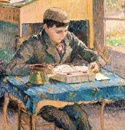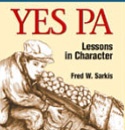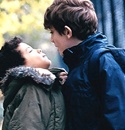The tomb of virtue
After last month's massacre of nine black worshippers at the Emanuel African Methodist Episcopal Church in Charleston, S.C., Americans braced for more racial upheaval. That did not happen.
One priest's impact on the New York Times' David Brooks
New York Times columnist, best-selling author and all-around pundit David Brooks has written a book making the case for a societal return to morality.
The Horrors of Self-Esteem
The shallowest and least attractive of modern psychological concepts is probably that of self-esteem.
4 Ways to Avoid Lifelong Adolescence and Get More Out of Life
You know that conversation in the cafeteria flows better when you mention a tweet by Katy Perry, not the morning's Wall Street Journal book review.
Boys, Porn and Education
The headmaster of the all-boys boarding school I attended when I was a teenager was always wary of admitting students to the academy that had been exposed to pornography.
Yes Pa: Lessons in Character
Yes Pa shows kids the secret of a happy life — and how to become the author of their own life story.
Whose Rights? The Paradox of Moral Relativism
Whose rights are protected in a relativistic culture?
How Do We Develop the Cultural Sensibilities of Children?
I am regularly asked by parents how they can teach an appreciation of good traditional art to their children.
Prevent Bullying, Promote Kindness: 20 Things All Schools Can Do
Taken together, these strategies can make schools what they ought to be: ethical learning communities where respect and kindness are the norm and where every student is able to learn in a safe and supportive environment.











